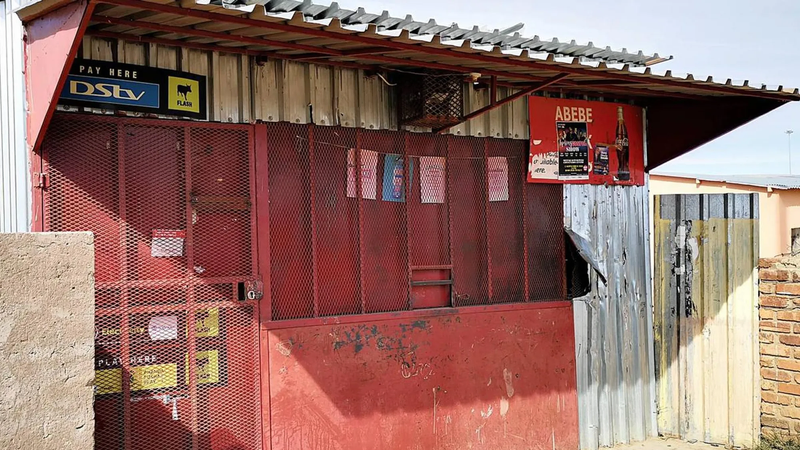RAIDING of spaza shops by Police begin today.
Stringent bye-laws will also be effected, as Gauteng Premier Panyaza Lesufi, takes back the fight to illegal operations in communities.
All spaza shops will have to re-register to comply with the South African laws, following the deaths of 23 school going children in the province.
Ekurhuleni leads the pack with highest number of incidences, followed by the West Rand yet the majority of deaths were reported in Johannesburg, followed by Ekurhuleni.
Since January, the total number of food contamination incidents stands at 441, with 23 deaths. The majority of the cases involve children between the ages of six and 10 years, according to the Premier.
Organophosphate, a toxic chemical found in rat poison, which has been linked to some of the deaths, will be investigated and the department of the agriculture department will oversee that.
The Premier was addressing a media brief on Sunday saying:” “It is clear what the cause of death is. From the forensic laboratories, we now know what caused the majority of those deaths. The substance that has been neutralised is linked to the agricultural sector.
Therefore, the MEC responsible for agriculture, MEC Vuyiswa Ramokgopa, will formulate an approach to address this substance.
“We have all agreed that this substance is banned in our province. It must not be found in shops or among formal traders, and law enforcement agencies will assist us in eliminating it where possible,” he warned.
The cooperative governance department gazetted new by-laws to regulate the operations of spaza shops and other traders in townships.
The regulations, which must be adopted by all councils, emphasise how spaza shops should be established, it sets standards including hygiene, as well as penalties and law enforcement measures for those who do not comply.
The document states: “A person who contravenes, or fails to comply with a provision of this by-law, fails to comply with a notice issued in terms of this by-law, fails to comply with a lawful instruction given in terms of this by-law, is guilty of an offence, and must be served with a written warning advising of the offence, remedial action and applicable times, consequences for failure to redress and the appeal process.”
It says on a first transgression, a person must be served with a written warning notice informing that person of the transgression and that his or her business licence may be cancelled immediately if he or she does not remedy the transgression within a reasonable time based on industry or sector trends.
On a subsequent transgression, a trader must be served with a written notice informing them of the transgression and that, subject to an appeal process, his or her business licence is immediately cancelled and that he or she will be barred from reapplying for a licence in any municipality for five years after the subsequent transgression. The registration process starts next month.
The document says an authorised official appointed by the municipality is responsible for monitoring and enforcement of this by-law and must regularly liaise and co-operate with home affairs and health department officials, and the South African Revenue Service to ensure compliance with relevant and applicable legislation.
A municipality may apply its discretion to impound business equipment where continuous transgression without remedy is observed; or release the business equipment at a fee in line with municipal tariffs.
A municipality may impound goods on reasonable suspicion that such goods are expired or illegal, and goods that are confirmed to be expired or illegal must be handed over to the relevant government body for destruction.
Business owners will be compelled to keep records of where they buy their products.
We now know what to do going forward, including the executives.
“We know the source that is taking the lives of children and we need to close that source and from tomorrow (Monday) the executives know what they need to do,” he said.
The by-laws also place an expectation on traders who are foreign nationals to hire South Africans.
“A municipality may, based on its developmental objectives, determine quotas on the proportion of businesses within specific categories of businesses, to be owned and operated by foreigners in line with all the relevant legislation.
“In determining the quotas a municipality must ensure, amongst others, that a proportion of the total staff employed in the business are South African citizens or permanent residents in line with all relevant legislation.”
Lesufi said a task team of police, departments of health, agriculture and small business development, among others, will meet every Saturday to assess the effectiveness of the interventions and report to the public every Sunday.
He said the police would start daily raids on spaza shops as from today.
“The first thing which is crucial now is law enforcement. For those who don’t comply, we’ve given the mandate to law enforcement agencies to move with speed. There is a meeting of all law enforcement agencies every Tuesday. We’ll have targeted raids and we’ll also close the shops that don’t comply,” he said.
Last week Gauteng education department said it would suspend the selling of food by private vendors in and outside schools.
Other provinces should also follow suite.
Image provided (Spaza shop in Naledi, Soweto was shutdown following the deaths of school children recently. Tough regulations have been implemented).


